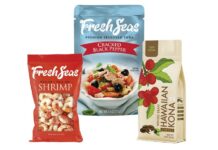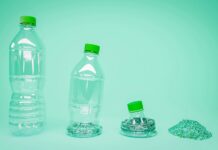Scandinavian dairy producer Arla has announced it will use renewable wood-based bioplastic for its gable-top paperboard milk, yoghurt and cooking cartons.
The raw material used for the cartons is a development by Finnish forest-based bioindustry company UPM and can be recycled with cardboard.
Arla brand and category manager Sanna Heikfolk said: “When we have a liquid product such as milk, a thin plastic film is needed inside the carton for reasons of product safety and shelf life. In our new packaging, the source of plastic is now even more responsible because it is made of wood-based raw material.”
Wood-based bioplastic sustainability
The packaging made by Elopak and the coating, called BioVerno naphtha, is made at UPM’s Lappeenranta biorefinery using a tall oil, a by-product of wood pulp production. The Dow Chemical Company is also involved in the collaboration. The wood-based bioplastic used in the cartons reduces the need for fossil-based plastics by 180,000 kilos per year and reduces its carbon footprint by about a fifth.
Arla and Elopak have been collaborating together for more environmentally-friendly packaging in the food industry since 2014.
Elopak managing director Juha Oksanen said: “A conventional milk carton is usually about 85% paperboard. We wanted to launch a type of packaging that would be 100% wood-based and in which the plastic would also be wood based.”
UPM Biofuels vice president Sari Mannonen said: “We are very pleased to be working with a pioneer such as Arla, with whom we can further reduce the carbon footprint of paperboard packaging for liquids using our renewable raw material, and this applies to the whole chain, up to the consumer.
“Also, by using wood-based raw materials we are not competing for raw materials with the food production industry, because tall oil is a residue of pulp production.”
Arla is working on developing more responsible packaging solutions such as replacing the plastic pots and lids with paperboard for its 150g Luonto+ yoghurt packaging and making over 40 million products more sustainable in 2019 due to consumer demand.



























